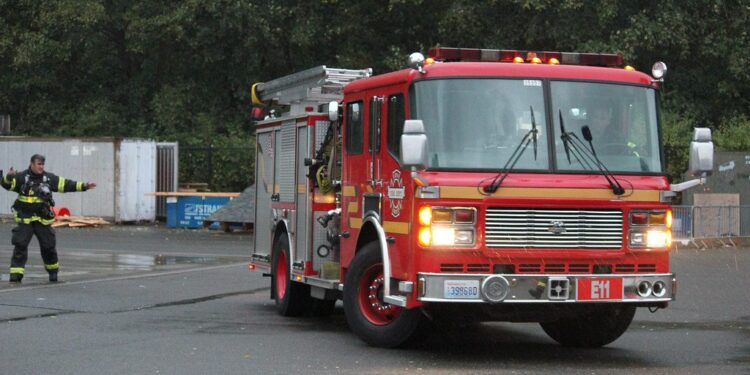Seattle is launching a groundbreaking initiative aimed at improving the safety and efficiency of autonomous vehicles by preventing them from entering active emergency scenes. This new pilot program, known as the Digital Conflict Awareness Management Program (dCAAMP), is designed to keep emergency zones clear of autonomous cars, transit buses, and other connected vehicles, thereby allowing first responders to operate without unnecessary interference. By leveraging real-time data from Seattle’s 911 dispatch system, dCAAMP identifies ongoing emergency situations and relays this information to vehicles through the Mobility Data Specification (MDS), a standardized and machine-readable data format that enables dynamic rerouting to avoid emergency areas.
The importance of this program cannot be overstated, especially as Seattle prepares to welcome state or federal regulations that will allow autonomous vehicles to operate on public streets. According to Seattle Fire Department Chief Harold Scoggins, ensuring that autonomous vehicles do not slow or impact first responders during emergencies is essential for public safety and efficient emergency response operations. This pilot builds on insights and lessons from other cities that have integrated autonomous vehicles into their transportation networks, further reflecting Seattle’s commitment to responsible and innovative urban mobility solutions.
The Digital Conflict Awareness Management Program is a collaborative effort between the Seattle Department of Transportation, the Open Mobility Foundation, Blue Systems, and the University of Washington Sustainable Transportation Lab. This partnership combines expertise in transportation management, autonomous vehicle technology, and urban planning to develop a system that promotes safer integration of autonomous vehicles in city environments. Funded through the Washington State Supplemental Transportation Budget for 2023 to 2025, the program is set to launch later this year, marking a significant step forward in the deployment of smart vehicle technology in Seattle.
Seattle has already taken multiple steps to regulate and manage autonomous vehicle testing and deployment. The city requires autonomous vehicle companies to obtain permits for testing and has created an inclusive planning cohort to provide community-guided recommendations on smart vehicle usage and safety. These efforts, along with dCAAMP, form a comprehensive strategy to ensure that the growing presence of autonomous vehicles in Seattle’s streets aligns with public safety goals and urban mobility needs.
As autonomous vehicles become increasingly common on public roads, programs like dCAAMP are vital to address potential conflicts between these vehicles and emergency responders. The integration of real-time emergency data into vehicle routing systems represents a forward-thinking approach to urban transportation, reducing risks and improving the overall safety of the city’s transportation network. Seattle’s leadership in adopting such innovative solutions positions the city as a model for other urban centers looking to safely incorporate autonomous vehicle technology into their infrastructure.





